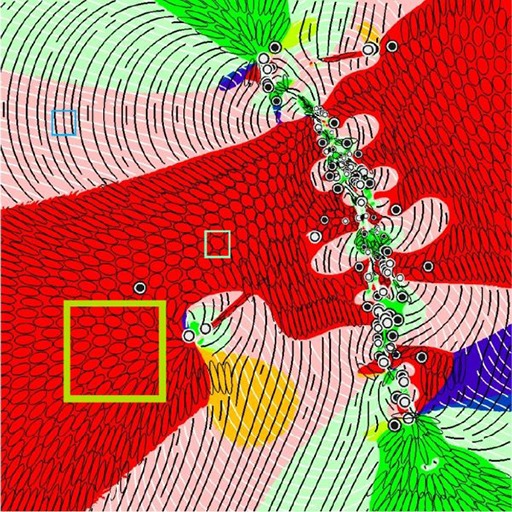All organisms create internal models of their surroundings when they interact with the world. To ensure their survival, individual species connect to an underlying reality in radically different ways. Sensing their environments through their own particular sensoria, what any organism experiences is a self-centred world that is intrinsically subjective. Meanwhile, it’s equally true that at a fundamental level, the unit of survival is neither the individual, nor the group, or even species, but rather only ever ‘organism plus environment’ (Bateson), and thus life can be considered a vast interconnected web where multiple worlds overlap.
At a time when AI increasingly gains more cultural weight, this workshop starts from the premise that human intelligence is part of larger ecological system and should not be separated from it. Network theory will be explored as a tool to conjoin the human and non-human alongside an unorthodox, performative logic that shows how binary oppositions are neither inherent nor fixed. Workshop participants will devise novel approaches for their individual studio practice.
Public
Masters and PHD students of the following UBI courses: Architecture, Film, Design, Multimedia Design, Media Arts.
Maximum participants: 14.
Registrations: https://forms.gle/5yPmYCAMpAUb2Xg37
About CADA
CADA is an art group that uses new media to activate a space for experience. Its work is playful and often inspired by what in everyday life and in nonhuman environments can be inferred through patterns and what might otherwise be uncomputable. The group’s approach is collaborative and experimental. It also organises Human Entities, an annual programme of public talks focused on technological change and its impacts, runs workshops to examine narratives of computation and the ANIMAIS residency to extend participation in new media. Formed in Lisbon in 2007 by Sofia Oliveira and Jared Hawkey, CADA has exhibited across Europe and in Brazil. CADA has received public funding from the Directorate-General for the Arts (DGArtes) of the Portuguese Ministry of Culture, the Creative Europe Programme of the European Union, the Portuguese Foundation for Science and Technology (FCT) and Lisbon City Council.
Organization: Sara Velez, DesignaLab – iArtes* // Image: Guoning Chen.
